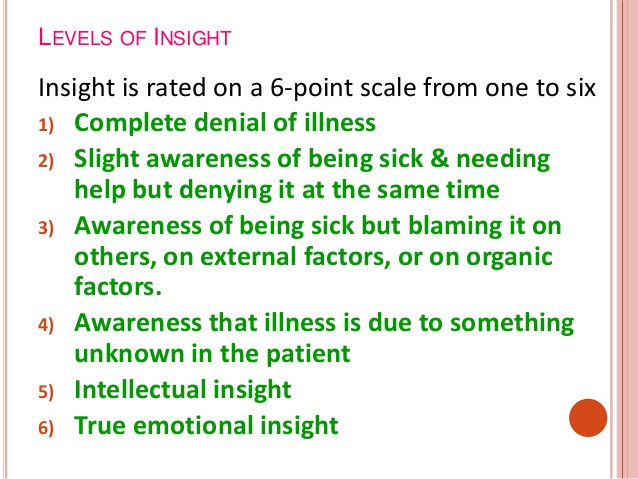Engagement, adherence, recovery in Schizophrenia
TIPS FOR ENGAGING INDIVIDUALS
WITH PSYCHOTIC ILLNESS IN TREATMENT
With the right treatment people affected by psychotic illness can and do live successfully.
Promote recovery. Provide information and resources. Instill hope.
• Always encourage individuals to be active participants in their treatment. Ask them about their strengths, interests immediate needs and how they prefer to communicate and receive information and support.
• A direct conversation with an individual is the best source of information about his or her mental health.
A person’s medical records are only one source of information; they may not be complete or reflect the current status of an individual’s mental health.
• Recognize that a person experiencing psychosis may find it difficult to tell what is real from what is
not real. Understand that the delusions and/or hallucinations are very real to the person. Do not dismiss, minimize or argue with the person about their delusions and/or hallucinations.
• Try to empathize with how the person feels about their beliefs and experiences, without stating any
judgments about the content of those beliefs and experiences.
• Avoid confronting, criticizing, blaming, joking, laughing at or using sarcasm with the person
experiencing psychosis.
• Be honest and do not make promises that cannot be kept.
• Communicate in a brief and uncomplicated manner and repeat things if necessary. You may need
to break up your meeting into segments, meet on several different days or take breaks. Consider
asking the individual if they would like to communicate via social media, text, telephone or facetime.
• After you speak, allow ample time for the person to digest the information and respond. Try to limit the
number of decisions an individual has to make during a single conversation. If the person shows limited
feelings, it does not mean that he or she is not feeling anything.
• Ask the person about what they have done in the past that has been helpful.
• Determine whether the person has a supportive social network (family members, friends, peers) and
if they do, encourage them to utilize these supports.
• If the person decides to seek additional treatment or help, make sure that he or she is supported
emotionally and practically in accessing services.
• Be aware that the person who is experiencing psychotic symptoms may deny that there is anything
wrong or may not want treatment.
• Understand that unless a person with psychosis meets the criteria for involuntary committal procedures,
they cannot be forced into treatment. Never threaten the person with hospitalization.
• Remain patient, friendly and keep lines of communication open. People experiencing psychosis often
need time to make decisions about treatment and they may be more inclined to seek help in the future.
Powered By EmbedPress
Working with delusions is similar to hallucinations, except that more non-verbal techniques are required. You will need to sit in silence longer and with more patience, as delusions do not tend to go away, ever. The person may not verbally express them as often, but they are usually omnipresent.
1. Establish a trusting, interpersonal relationship
- Do not reason, argue, or challenge the delusion. Attempting to disprove the delusion is not helpful and will create mistrust.
- Assure the person that they are safe and no harm will come.
Do not leave the person alone – use openness and honesty at all times. - Encourage the person to verbalize feelings of anxiety, fear, and insecurity – offer concern and protection to prevent injury to themselves or others.
- Convey acceptance of the need for the false belief.
- Focus on building a trusting relationship with the person, rather than the need to control their symptoms – remain calm.
2. Identify the content and/or type of delusion
- Empathize with the person and try to understand the purpose behind the delusion.
- Paraphrase what the person is saying or trying to say to clarify any confusion about the delusion they are describing.
- Without agreeing or arguing, question the logic or reasoning behind the delusion. For example: “If the CIA are harassing you, who is the contact person?”
- Do not confirm or feed into the delusion by asking questions about it when the person is not in psychosis. For example: NEVER ask, “How’s the CIA today?” when the person is well.
- Identify what might be the central topic.
- Identify the main feeling and/or tone of the delusion.
3. Investigate how the delusion is affecting the person’s life
- Assess if and how the delusions are interfering with a person’s life. For example, are they are no longer able to function or participate in regular everyday life?
- Assess if the delusion is affecting a person’s relationship with others.
- Determine if the person has taken action based on their delusion.
4. Assess the intensity, frequency, and duration of the delusion
- Keep a log documenting the intensity, frequency, and duration of a person’s delusion.
- Determine if their delusions tend to occur at a certain time of day or are related to certain activities or actions. This can help you look for ways to avoid situations that may trigger paranoia or delusions.
- Some delusions are fleeting and brief, while others are more long lasting and endure over a long period of time.
5. Attempt to redirect or distract the person from their delusion
- Does the person always greet you with the delusion? If so, just quietly listen and then give direction for the task at hand.
- If it appears that the individual cannot stop talking about the delusion, ask gently if they recalls what you have been doing and that it’s time to resume that activity.
- If the person is very intent upon telling you the delusion, just quietly listen until there is no need to discuss it any further.
- Remember that it is helpful to give the person reassurance during the delusion that they, as a person, are okay.
Ways to cope with someone who has delusions
Try to offer empathy and focus on the emotions that the person is experiencing. Arguing facts and details may cause the person to shut down and perceive you as judging them. By offering support with no judgement that doesn’t confirm or deny the delusion, the person may feel consoled and trust that you care for them. Some things to keep in mind as you speak to the person:
1. Pay attention to the emotions of the person
2. Discuss the way you see the delusion
3. Express that you are concerned about the person
4. Offer to pursue therapy together but be strategic
5. Ask the person why they believe as they do and be open-minded
6. Avoid getting frustrated and expressing that to the person
7. Learn about Cognitive Distortions or Thinking Errors
8. Model engagement in reality testing
Powered By EmbedPress
Powered By EmbedPress
Powered By EmbedPress

